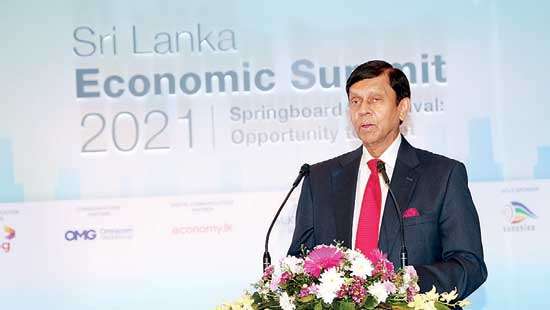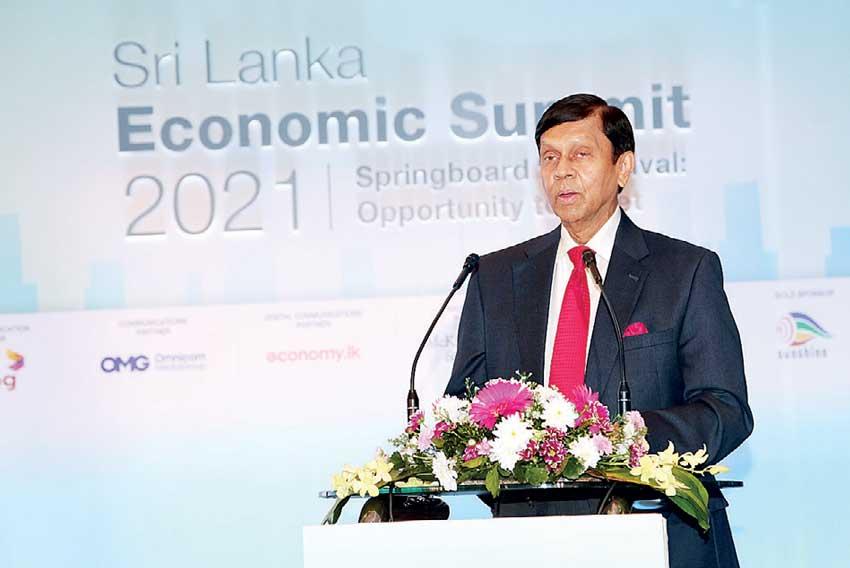Reply To:
Name - Reply Comment


By Nishel Fernando
Central Bank Governor Ajith Nivard Cabraal sees a rare silver lining for the country to transform its external sector and the debt profile to a much resilient and sustainable position, with the unique approach taken by the government to emerge out of the current external sector crisis, instead of bending the knees to the International Monetary Fund (IMF).
“Every crisis has a silver lining and we should never waste a crisis. A crisis provides an opportunity and you are looking at revival. In reviving, you can always revive better. After tsunami, we built better and after the global financial crisis, we made our systems and our financial sector stronger.
After this crisis, we should make our external sector as well as our debt profile stronger and much more sustainable. We should be able to make business.
That’s the opportunity before us.
We can either look at it saying that the glass is half empty or we can say its half full,” an optimistic Cabraal told Sri Lanka Economic Summit 2021, held in Colombo yesterday, under the theme ‘Springboard for revival: Opportunity to reset’.
He delivered the keynote address of the summit organised by the country’s premier business chamber, the Ceylon Chamber of Commerce (CCC).
Cabraal reiterated that reaching out to the IMF would not solve the current crisis and assured the leading private sector business leaders present at the venue of the summit, Shangri-La Colombo and those taking part virtually, that the government is equipped with tools and expertise to find the solutions for the current economic woes within the country.
“The people think that the only solution is to go to an outside agency and ask for their advice on bended knees. I think it’s time for us to understand there are ways, which we can do ourselves. There’s nothing wrong in doing it by yourself,” he said. Cabraal insisted that the ongoing national debt restructuring exercise is not much different to a typical corporate debt restructuring process. Hence, he argued that the country does not require external expertise on this task.
“When you have a debt problem in your companies, what do you do? You will find ways and means to adjust your debt. You have to ensure that your average time to maturity is made higher; you will negotiate with your bankers and financial partners as to how to reduce interest rates. If you have too much of foreign debt, you adjust it to bring in local debt. These are regular practices you, as businesses, will do. The same thing the country must do,” he said.
Divulging to some of the key on-going reforms, he noted that the government has prioritised non-debt creating forex inflows and government-to-government forex inflows, instead of continuously borrowing from the commercial market in order to achieve debt sustainability.
Meanwhile, Cabraal assured the COVID-hit business and individuals, who have currently delayed their debt servicing, utilising the moratorium extended by the government, a soft landing and a seamless passage to sustainability, once the moratoria are lifted.
“We are now looking at having a soft landing, so when we lift the moratorium, the people and companies that have enjoyed the moratorium will have seamless passage to sustainability as we go on. Again, it’s a tough call but we have to do that; that’s why an educational process will be healthy,” he added. He noted that the government is also in the process of implementing key reforms to revive the country’s financial sector. He was confident of Sri Lanka attracting inflows from new equity funds in near future, as a result of the current reforms in motion.